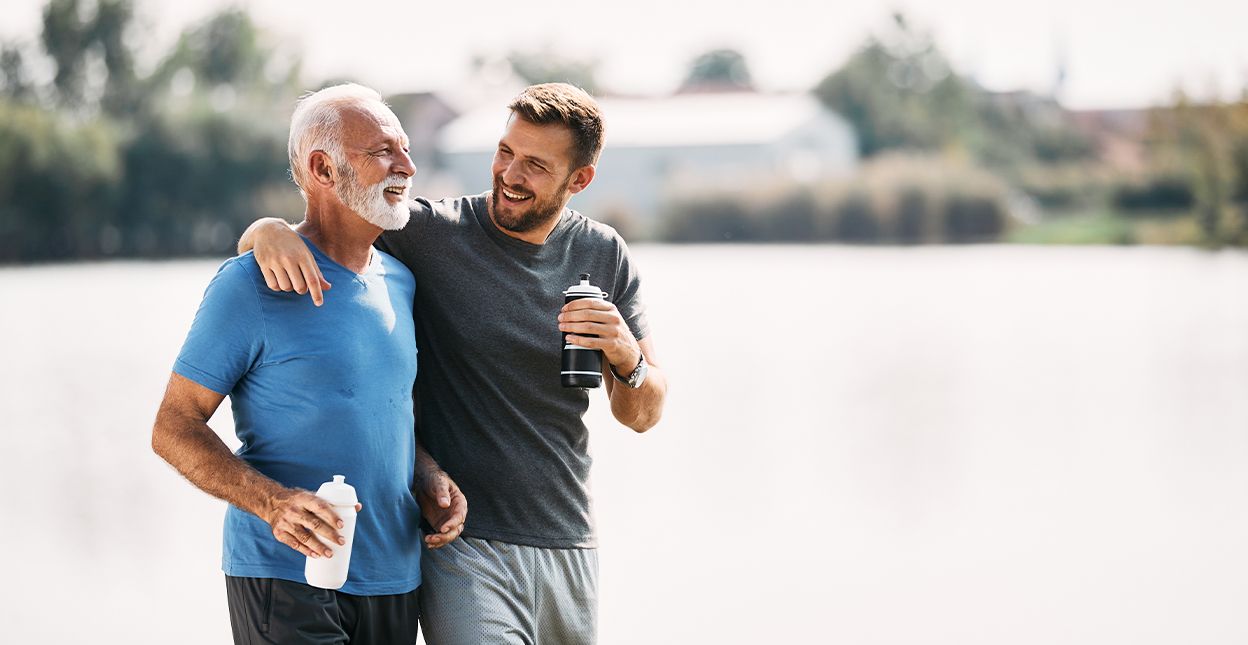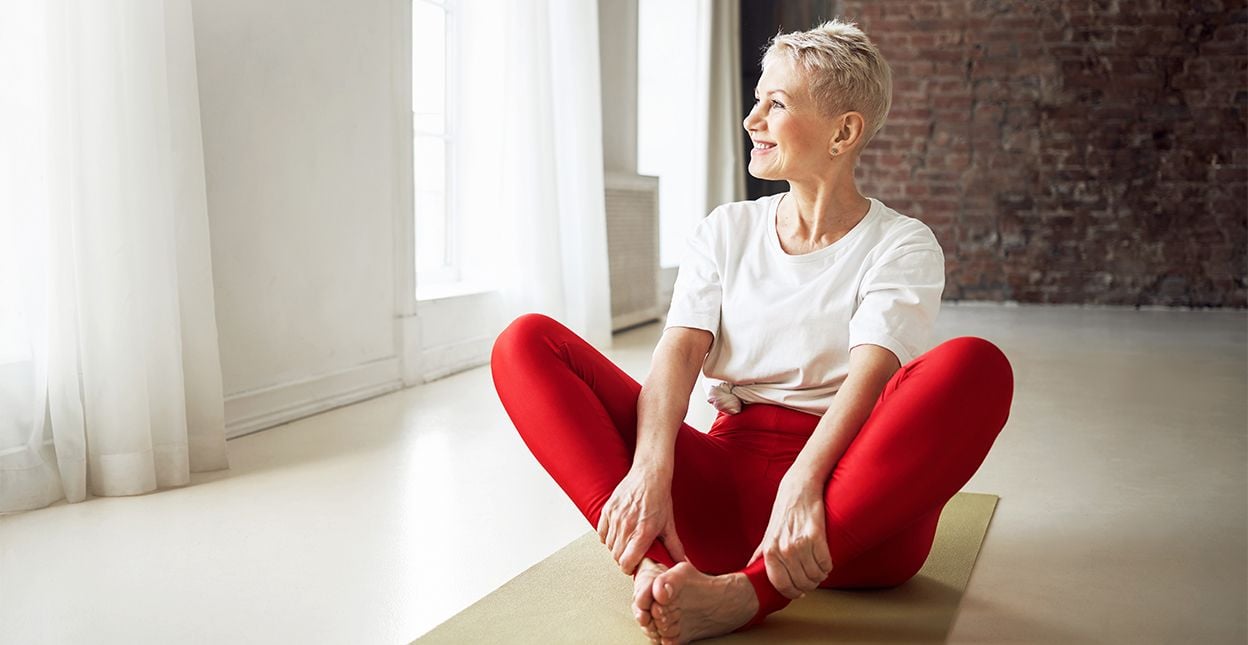Incontinence isn't just a "female problem"

When most people think about incontinence they think of it as a female condition, but in fact, over one million Australian men experience regular bladder leakage, with that rate increasing with age. Common causes include smoking, chronic cough, being overweight, heavy lifting, lack of fitness, pelvic floor muscle weakness, and conditions such as stroke and Parkinson’s disease. But one of the most common is as a result of prostatectomy after prostate cancer diagnosis.
We spoke to Peter Dornan AM, Brisbane physiotherapist who was diagnosed with prostate cancer at age 52 and has spent the next two decades working to improve his quality of life and control his incontinence as a result of his condition.
For 49 years, I have been a physiotherapist in the fields of Sports Medicine, manipulative therapy, Men’s Health and Pelvic Pain. Part of my role as a physiotherapist includes treating incontinence, preparing men for prostate surgery by teaching them pelvic floor exercises. Something I know only too well to be crucial to controlling incontinence. After undergoing surgery for my own prostate cancer, I was confronted with the full array of post-operative physical and mental hardships that became unfortunate realities of the procedure. I took this as an opportunity to create a forum for men and their partners to give support and be better informed in matters relating to prostate cancer.
In my time convening a Prostate Cancer Support Group, the first questions I would be asked about incontinence would be ‘How do I treat it? How long will it last? When can I exercise, work, make love? I’m worried about smell, personal contact and hygiene.’ Men are looking for answers, an immediate fix and above all, discretion. Understandably so too. Depending on their personality and past experiences of physical/medical problems, incontinence can be one of the most confronting, distressing and emotionally damaging conditions a man can encounter.
One of the basic problems with modern male culture is that we come from a background of representing the three Ps – Protect, Provide, Procreate. We don’t want to be perceived as weak, vulnerable and it takes a lot to have to ask for help. Prostate cancer and incontinence challenge all three of these concepts.
Thankfully, there are a lot more products and information out there today to support men going through these changes. There has been tremendous awareness in recent years and men are now beginning to realise this is nothing to be ashamed of. It is a medical reality that needs be addressed.
If it’s a loved one you are concerned about, encourage them to speak up and make use of the support that is out there. Incontinence pads and weight management, dietary changes and surgical options, can each be very beneficial.
The more overweight you are, the greater your chance of incontinence. Coffee, tea, caffeine, and alcohol have been known to have a negative effect on incontinence, acting as a diuretic and increasing the amount of urine you make. In my experience, a Mediterranean Diet, eating primarily plant-based foods, such as fruits and vegetables, whole grains, legumes and nuts, helps with weight loss/control and is anti-inflammatory.
- Admit you have a problem – this is half the battle and you don’t have to struggle through.
- Seek help from a professional, be that GP, Physio, Continence Nurse. They will be able to advise you on the best course of action and give you back control.
- Get Fit! Learn pelvic floor exercises, abdominal and functional exercise training. It worked wonders for me.
- Seek out the right product for you. If you aren’t sure which this is, websites such as Depend can guide you.
For your free sample of Depend click here, or if you wish to purchase products to be delivered to you click here. Simple as that.





